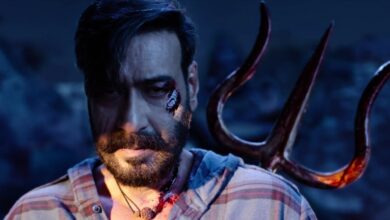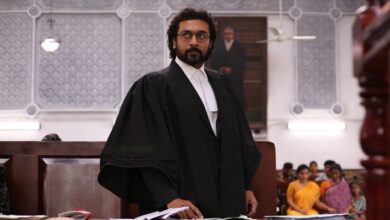The Second Act Review: Between Artificial Intelligences and Empty Theaters
Cast: Léa Seydoux, Vincent Lindon, Louis Garrel, Raphaël Quenard, Manuel Guillot
Director: Quentin Dupieux
Where We Watched: At the Cannes Film Festival
Filmyhype.com Ratings: 3.5/5 (three and a half stars)
Whether you like the Gallic genius (?) Quentin Dupieux or not, The Second Act is not his best film. Whether you like the Gallic genius (?) Quentin DupieuChosen by Thierry Frémaux and friends to inaugurate – out of competition, of course – the 77th Cannes Film Festival, it fits in well in the not-so-exciting series of recent openings. Released at the same time in French cinemas (the previous Daaaaaalí! has yet to arrive), it perhaps owes its honor to Frémaux’s declared desire to free the festival from controversies, and in particular, those involving #MeToo, after the improvident decision to open last year with Jeanne Du Barry and the reprobate Johnny Depp or not, The Second Act is not his best film.
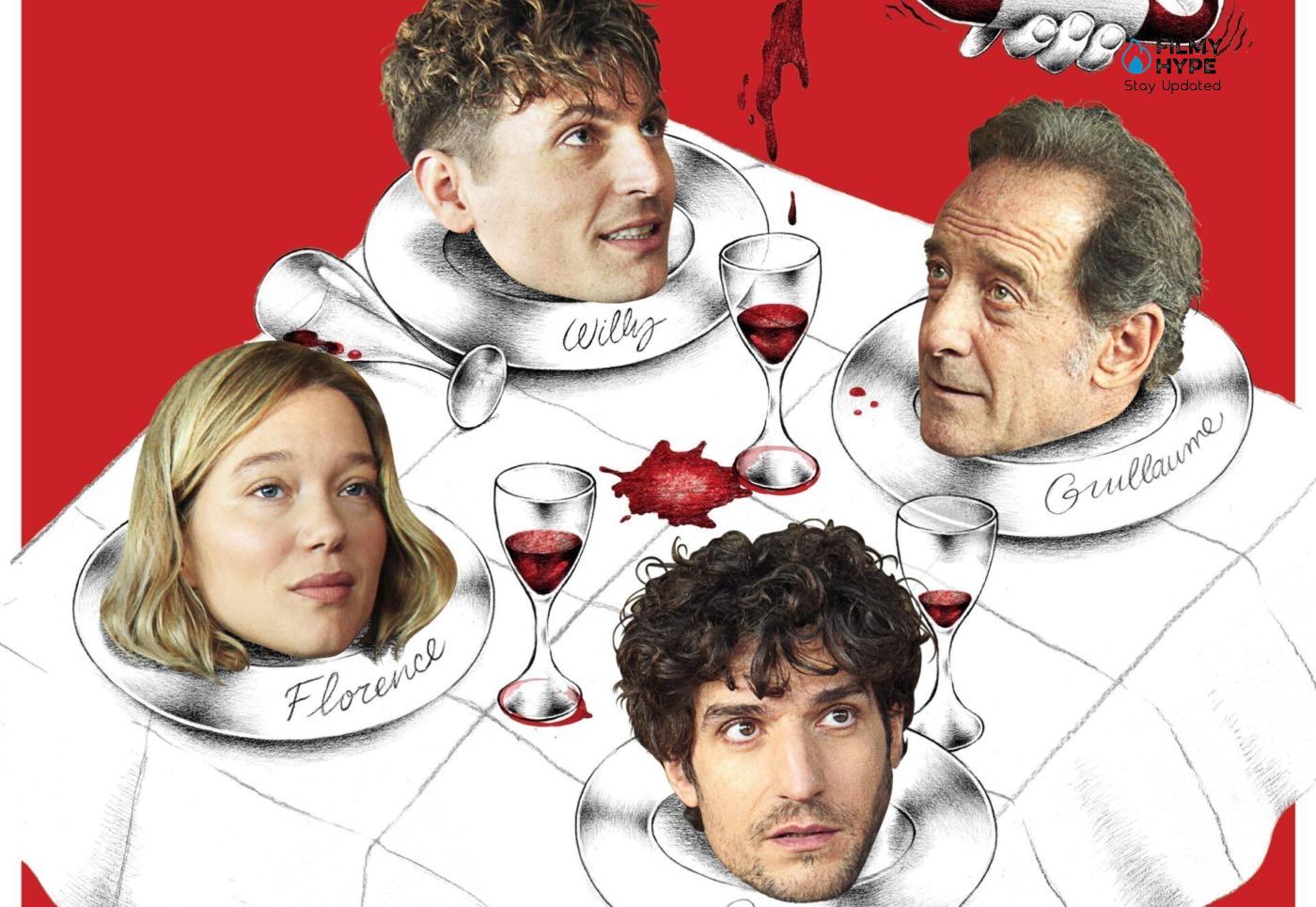
Among the recent certainties of cinephile life is the fact that Quentin Dupieux, one of the most prolific French filmmakers, secures at least one film a year. And so, after 2023 double made up of Yannick and Daaaaaalì! (presented a month apart from each other, the first in Locarno and the second in Venice), here it is ready again, for the opening of Cannes, with a new feature film, led by three of the greatest faces of contemporary transalpine cinema. And to inaugurate the 2024 edition of the great festival there is a certain logic in the choice of the new creative approach of a director who has always enjoyed exposing the absurdities of life and entertainment, and who in this case, as we will delve further in his review of The Second Act, he also ridicules the mechanisms of cinema.
The Second Act Review: The Story Plot
The story revolves around Florence (Lèa Seydoux), who wants to introduce David (Louis Garrel), the man she is madly in love with, to her father Guillaume (Vincent Lindon). But David is not attracted to Florence and wants to get rid of her by throwing her into the arms of her friend Willy (Raphaël Quenard). The four characters meet in a restaurant in the middle of nowhere and thus begin what should be a quiet and banal moment of getting to know each other. But the four are actors struggling with the making of a film, which will undermine the veracity of what is observed. The Second Act has the same limitations and merits as Dupieux’s recent cinema, which can be summarized as: “The boy is intelligent, but he applies himself up to a certain point”.
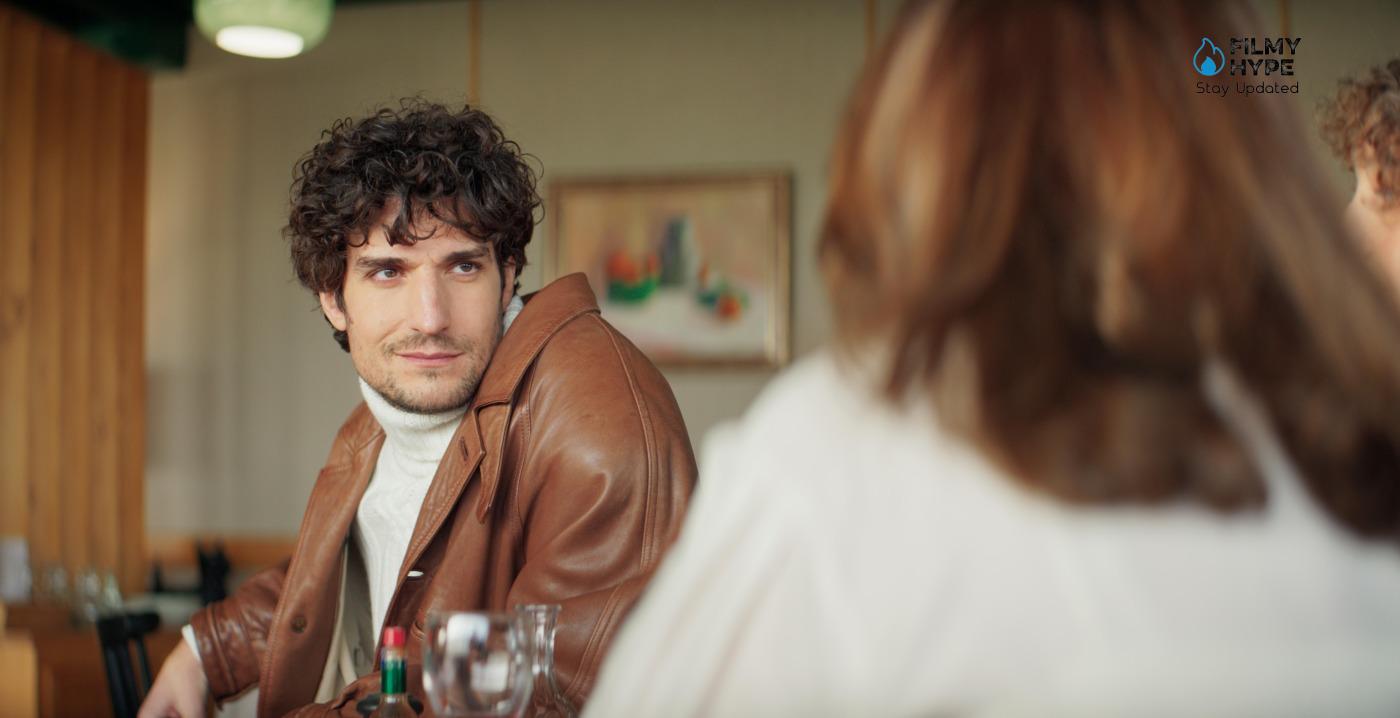
Perhaps if we want to see more planning than that of the director himself, this film with the two previous ones Yannick and Daaaaaalí! It forms a sort of trilogy of meditation on art and creativity. Yannick talks about the snobbery of the cultural world and the detachment from its users, Daaaaaalí! of creativity that bends the linear logic of life and reality. The same thing happens in The Second Act, which is the perfect film to open Cannes, given that it talks about cinema-making meta-cinema and reflects on the state of health of the industry with irony, while on set shooting the usual film inside the film. The four protagonists are busy actors on the set of a not-so-bright romantic comedy. Dupieux is a capable, insightful writer.
He moves with great ease from the plot of the film being shot to that of the film we are watching, giving us a peek into the professional and personal lives of his performers. Some are proud to have finally received the call from Hollywood, those who are attentive to political correctness, and those who would like to withdraw from the project without repercussions. After the first breaking of the fourth wall follows a transphobic comment (“You can’t say something like this, we’re filming!” says Garrel pointing to the camera in front of him and us in the room watching the show) there is a continuous slip between three floors. There is the film within the film, the behind-the-scenes of it which acts as a narrative frame and, in the margins, a reflection on the torments and fears of those who make cinema.
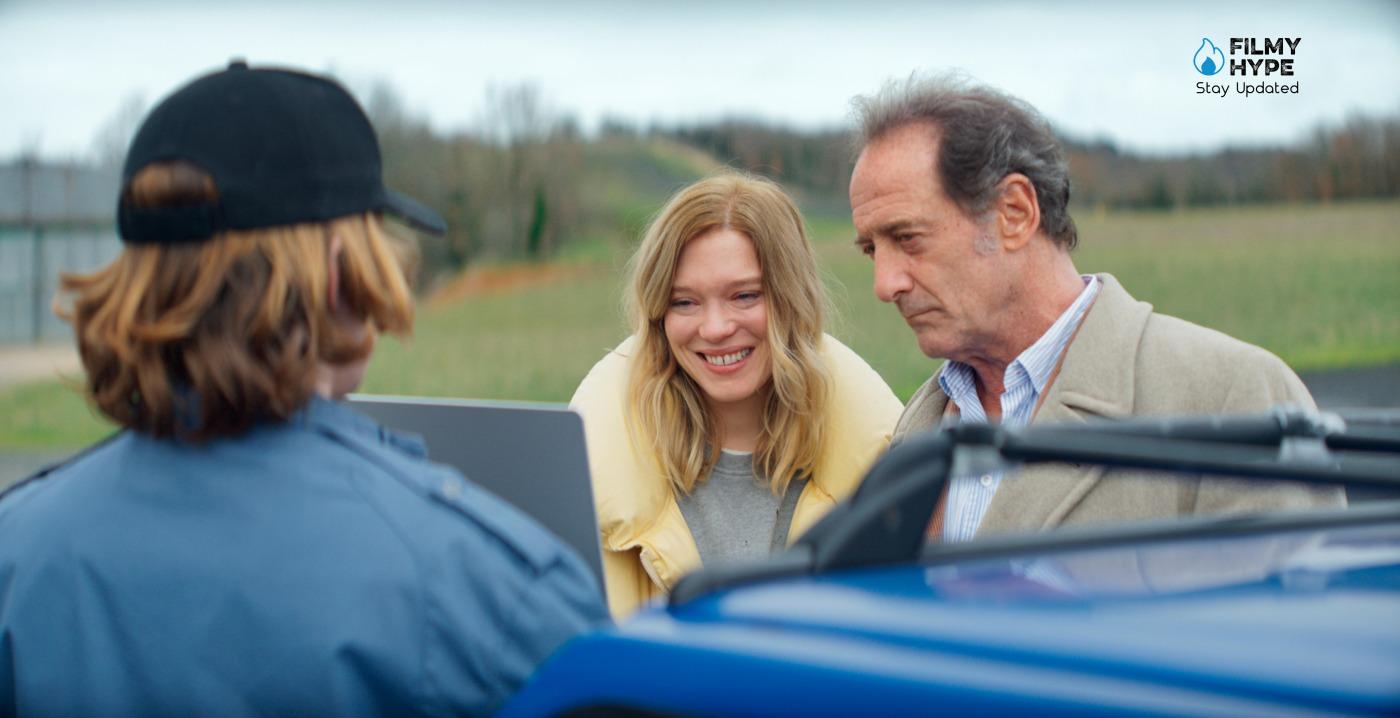
The frantic attention to avoid being canceled, the lure of English-language cinema, the half-empty theaters, the irrelevance of cinema in the (cultural) life of the public, and, of course, artificial intelligence. Dupieux therefore resorts to the most relevant narrative device of this moment, the most used and abused: the narrative meta-frame, telling a thing and at the same time acting as an explicit commentary on it. A little critical, a little meme in the name of detached self-awareness. As the thorough screenwriter that he is, Dupieux does it in a brilliant, rarely irritating way. The continuous conscious and insistent jumping between scenes of the film and dialogues between actors behind the scenes without cuts, without interruptions then allows the four protagonists to show off their skills. They’re all very good, but Vincent Lindon eats up the show.
The Second Act Review and Analysis
The Second Act means “The Second Act“, and in the context of the film it is the name of a restaurant where four characters are going: the one hand, Florence and her father Guillaume, to whom the young woman wants to introduce the man of his dreams, David; on the other, there is David himself, accompanied by her friend Willy, to whom she hopes to be able to foist Florence because he is not attracted to her in the slightest. But there is more underneath, or rather, behind the four are actors, with the same names as their characters, and they are trying to shoot a very particular film (the behind scenes contain satirical references to recent concerns about the use of ‘ artificial intelligence in the artistic field), which is not easy because Willy continues to deviate from the script and Guillaume, whose agent has just let him know that he is in the running for a part in Paul Thomas Anderson’s next project, is a bit like Stanis La Rochelle of the situation, convinced that he is above the mediocrity of today’s so-called auteur cinema in Europe.
Willy is Raphaël Quenard, one of Dupieux’s new fetish actors and protagonist of the previous Yannick, perfectly placed in the role of the outsider who deals with cinema veterans, played by Louis Garrel (David), Léa Seydoux (Florence) and Vincent Lindon (Guillaume), all willing to get involved with a smile on their faces and full self-deprecating determination. But Manuel Guillot steals the show from the quartet, in the role of Stéphane, a novice extra: a role which, ironically, will give greater visibility to his interpreter, who in France is essentially known for his voice, among documentaries, dubbing, and television commercials, and in the cinema he only had minor parts. Wackiness has always been Dupieux’s stylistic hallmark, ever since he exploded internationally with his second feature film, Rubber (starring a killer tire), but for a few years there has been a hint of a sort of creative stagnation, and It is perhaps for this reason that, with the new story about the four actors.
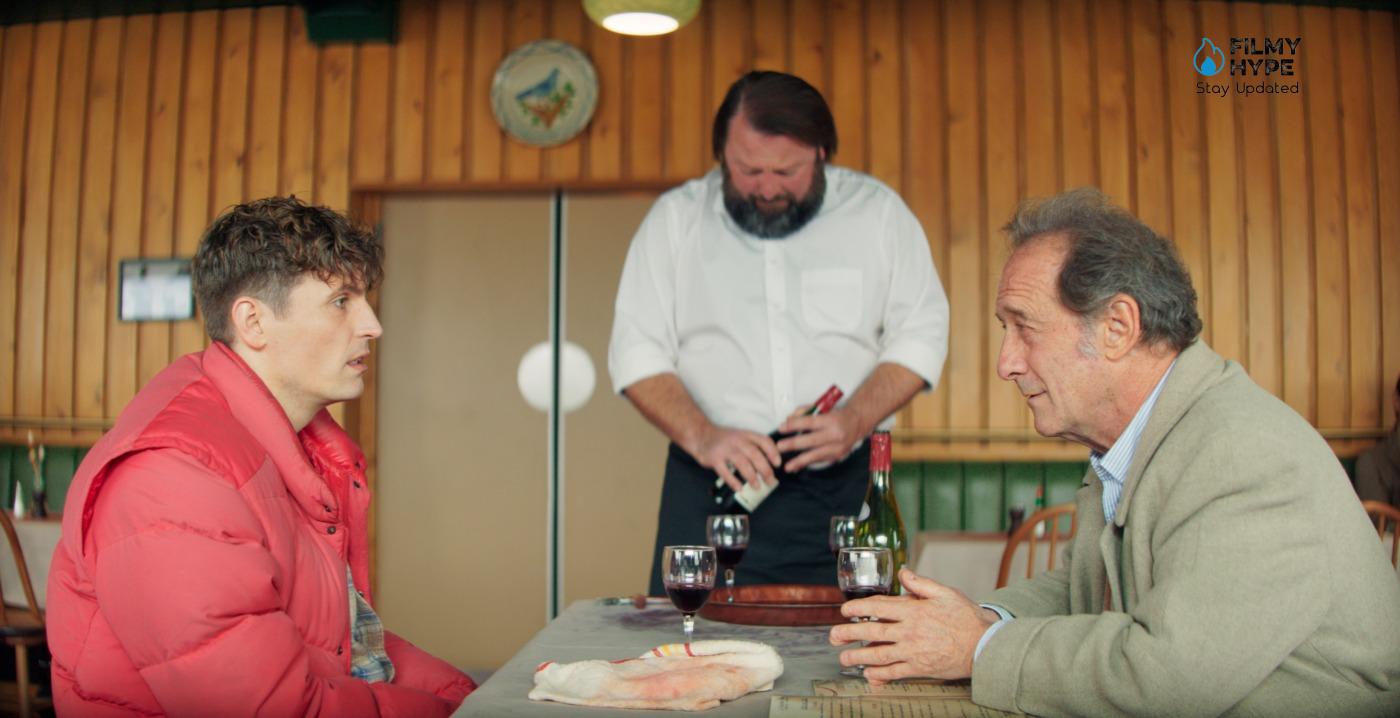
He chose to tackle head-on the issue of cinema as an art that is increasingly at risk of becoming a product created without heart, by machines that replace people (“His personal opinion doesn’t count,” the AI responds to a complaint on set). And perhaps also for this reason, making fun of the lack of originality of the digital algorithms (with an extra layer of self-irony because Netflix is among the financiers of the project), it moves towards a somewhat thrown away ending, a deliberately (?) indifferent conclusion after 80 minutes of laughter that targets easy targets – cancel culture first and foremost – but does so with rhythm and precision, especially during two sequence shots that are impressive in their apparent modesty.
What puts us in crisis today? What makes us feel inadequate compared to the surrounding world or makes us believe that this is the subject of profound and incomprehensible degeneration? Quentin Dupieux has some ideas about it and reports them in The Second Act, a film based on words, which therefore finds its stylistic signature in the long conversations between the protagonists, through which issues such as homosexuality, the wars currently underway, the hypocrisy of the glittering world of stars and the development of artificial intelligence. Each of these aspects finds its space in the film, giving rise to both comic interruptions and glimpses that bring into the story a reality that we would increasingly like to ignore. Here then it becomes forbidden for the characters to address the issues mentioned above, under penalty of the risk of ending up on the blacklist and seeing themselves banished forever from their world.
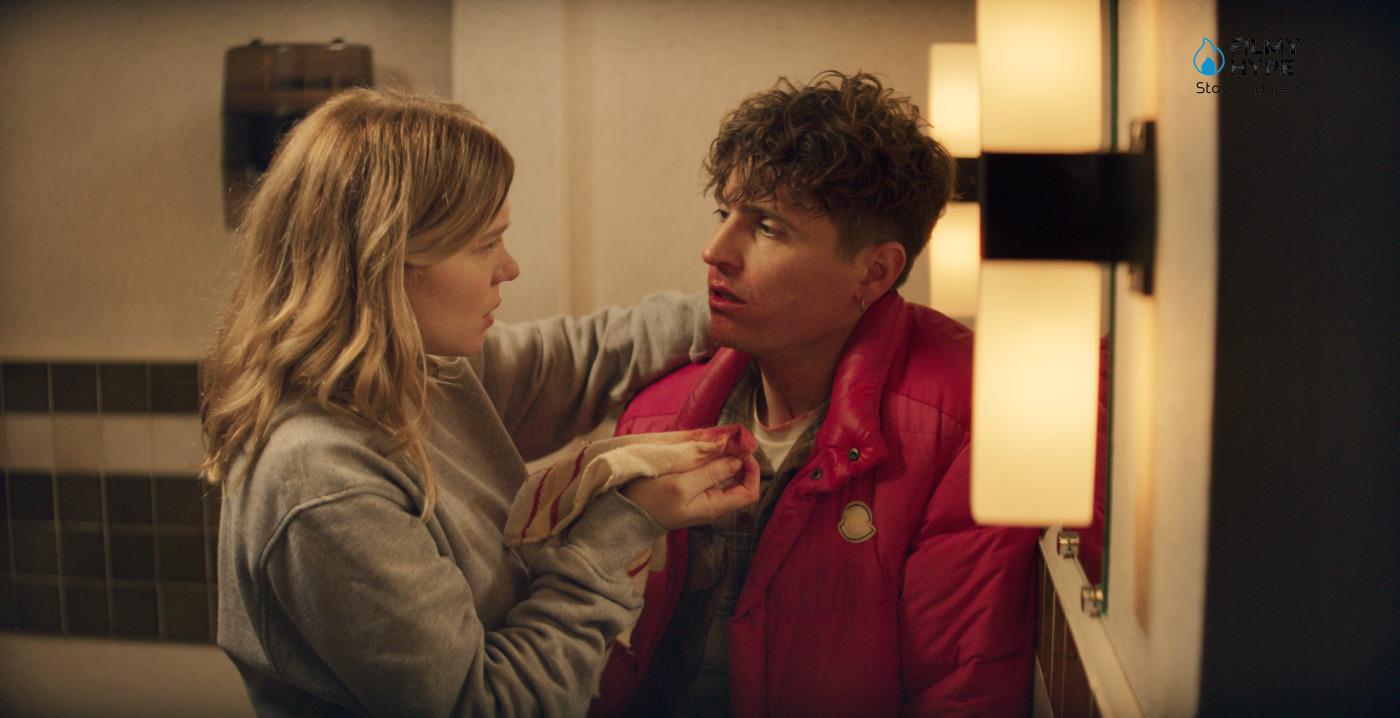
When they happen to move away from what they have to stick to – the script, to be understood as a metaphor for the guidelines of this hypocritical society – the reality that they prove to be completely unprepared to manage takes over. As if to avoid having to face this task, humanity then develops artificial intelligence, which with its algorithms, its percentages, and its strict rules seems in its way to come to our rescue. This further presence, however, serves Dupieux not only to joke about those who would like to use these tools in the cinematographic field (thus bringing to mind the recent Hollywood strikes) but also to imagine the sterility of a seventh art governed by these dynamics, with banal plots and dialogues devoid of human depth. However, it would be unfair to label The Second Act as a satirical film towards these aspects and, in general, political correctness.
Dupieux undoubtedly fits into this kind of discourse, but his interest seems not to be in taking a real position in this regard but in offering a simple representation of how these themes have led to the development of real neuroses in the human race, increasingly divided when faced with these topics. A depiction which, however, has no particular claims to intellectual depth or exploration of these dynamics. Some of them are barely mentioned, others are given more attention, but all of them appear to be addressed by Dupieux as real divertissements, arrows to be shot into the viewer’s mind to raise reflections on which he can then independently develop his own opinion. Amid this brilliant chaos, which offers much more than a laugh, the four leading actors stand out, equally excellent in giving life to these characters who enter and exit fiction, leaving the viewer to ask themselves what they are witnessing.
The Second Act Review: The Last Words
The Second Act is the opportunity for Quentin Dupieux to address, with his usual mix of reality and fiction, the key themes of current society and cinematographic art. Precisely by using the latter, the director makes use of a series of strategies to tell of a humanity that is increasingly divided and incapable of managing reality, therefore preferring to escape it as much as possible. Quentin Dupieux exposes, with his usual style, the absurdities of the film industry, with a very funny but not always focused exercise in self-irony. The writing and direction – do you remember The Big Boss, that was a marvel… of the film within the film fiddles around, truth and fiction embrace each other to create morals (and the poorest one leaves us in the lurch), and what do we want more, if not an iconic ending: a dead end, or rather, a dead end between sleep and reality.




